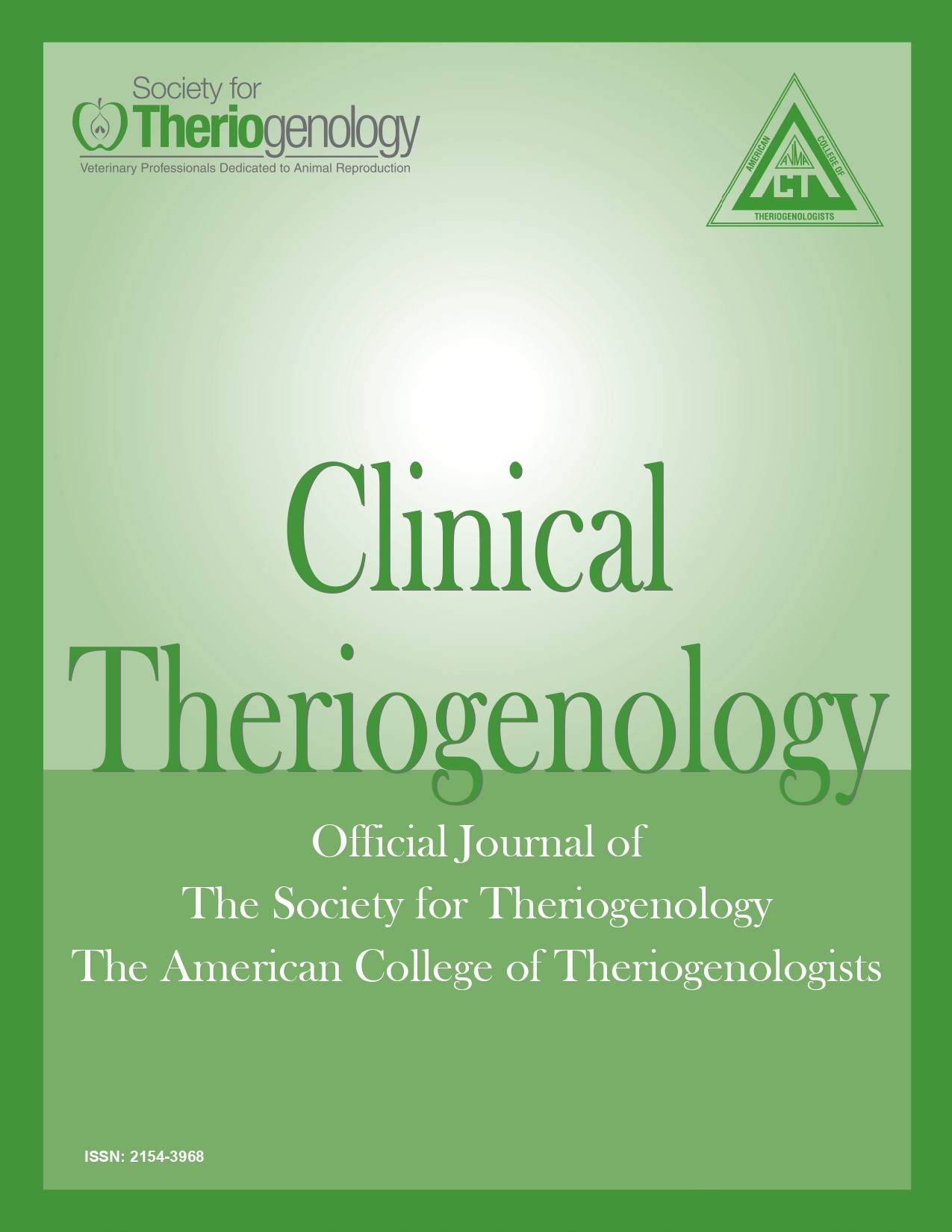Safety and efficacy of intrauterine kerosene infusions to enhance endometrial cup regression in mares
Abstract
Endometrial cup retention after early abortion can result in immediate or long term reproductive failure. Mares with active endometrial cups have abnormal estrous cycles and persistent mineralized structures have been occasionally reported one or two seasons after initial abortion. Although intrauterine infusions with kerosene were proposed as a method to enhance removal of endometrial cups, no controlled studies have evaluated kerosene efficacy. Objectives were to evaluate side effects and efficacy of intrauterine kerosene infusions to enhance regression of endometrial cups. We hypothesized that: i) intrauterine kerosene infusions hasten regression of endometrial cups without detrimental effects on the endometrium; and ii) mares have negligible systemic side effects after intrauterine infusions. Nine light horse breed mares were enrolled in the study after an artificially induced abortion (n = 12) at 58 - 62 days of pregnancy. Mares were randomly allocated an intrauterine infusion with 500 ml kerosene (Ker; n = 6) or 500 ml saline (Cont; n = 6) on days 21 and 35 after pregnancy termination. Uterine biopsies were collected upon completion of abortion at day 7, 21, 35, and 49, routinely processed and stained with H & E, and graded by a pathologist. Physical examinations, a complete hemogram, and serum biochemistry were performed before intrauterine infusion and daily for 2 days after the procedure. Uterine lavage was performed 24 hours after each infusion. Serum samples were collected right before the abortion induction and at 7, 21, 28, 35, 42, and 49 days after pregnancy termination for assessment of serum eCG concentrations. Continuous data were analyzed with mixed procedure with repeated measures in SAS and categorical data with logistic procedure in SAS. Significance was set as p < 0.05. Treatment had no effect on complete blood cell count or serum chemistry values or on objective or subjective parameters of physical examinations. Mean ± SEM eCG concentrations decreased over time, with no difference between treatment groups (day 0 Cont 88.7 ± 8.5, Ker 87.3 ± 8.5; day 7 Cont 86.0 ± 8.5, Ker 82.00 ± 8.5; day 21 Cont 79.3 ± 8.5, Ker 74.3 ± 8.5; day 28 Cont 73.0 ± 8.5, Ker 61.5 ± 8.5; day 35 Cont 59.1 ± 8.5, Ker 45.2 ± 8.5; day 42 Cont 58.5 ± 8.5, Ker 34.0 ± 8.5; day 49 Cont 45.2 ± 8.5, Ker 25.3 ± 8.5). Histologically, endometrium had no signs of increased fibrosis or degeneration related to treatment group. In conclusion, although kerosene infusions did not appear to have detrimental effects on mare health, there were no indications that kerosene infusions enhanced regression of endometrial cups.
Downloads

This work is licensed under a Creative Commons Attribution-NonCommercial 4.0 International License.
Authors retain copyright of their work, with first publication rights granted to Clinical Theriogenology. Read more about copyright and licensing here.





